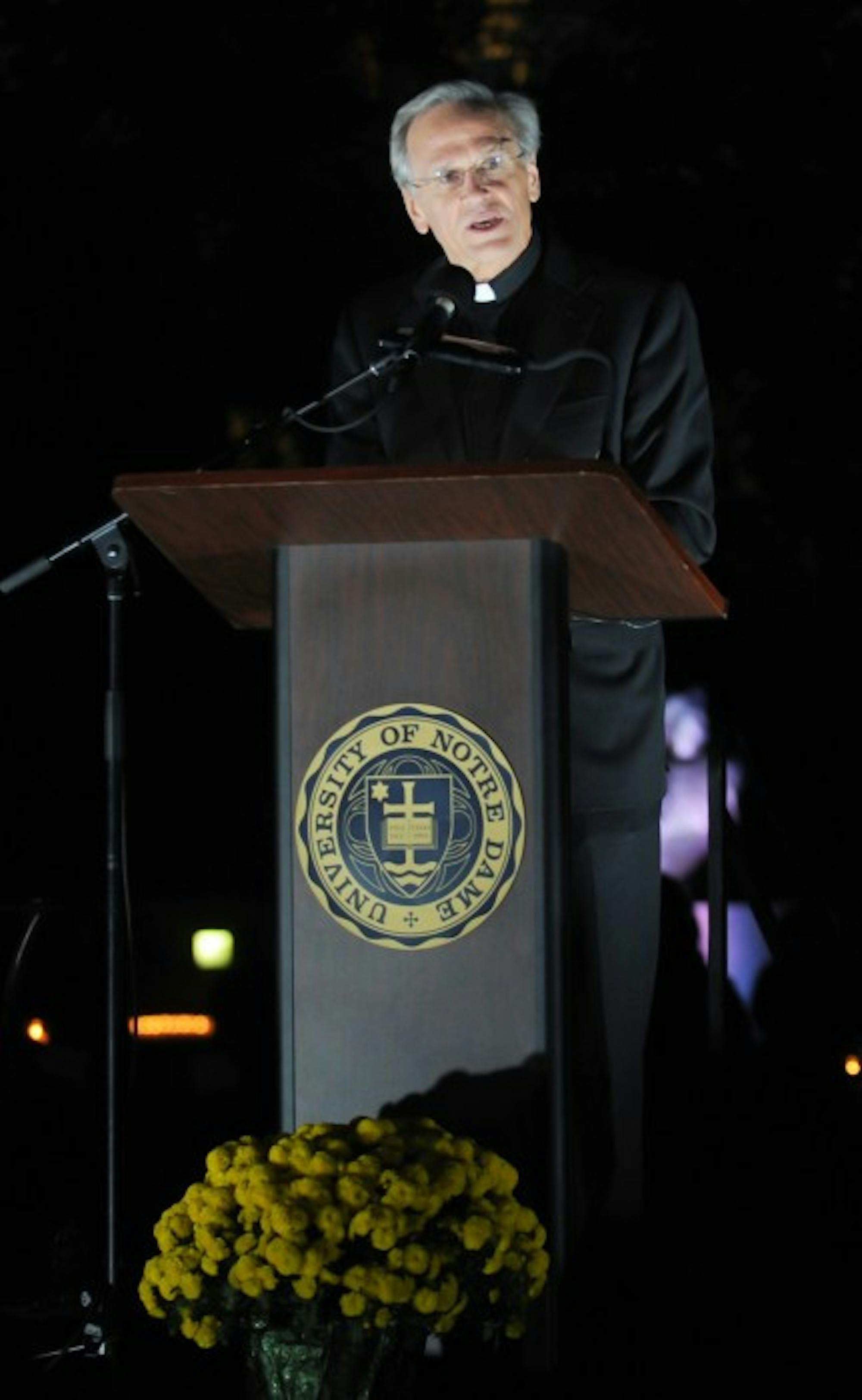At an interfaith prayer service Monday night promoting mutual respect after the 2016 election cycle, University president Fr. John Jenkins told Notre Dame students who are undocumented they have the full support of the University.

“You accepted our invitation to come to Notre Dame,” he said. “You are part of our family. We will do everything we can to ensure that you complete your education, and you are supported in every way possible.”
The message of support comes at an uncertain time for people who are undocumented in the United States. President-elect Donald Trump’s campaign promise to crack down on illegal immigration included rescinding Deferred Action for Childhood Arrivals (DACA), an executive order by President Obama that defers deportation for undocumented people who came to the U.S. as children, making it easier to work and go to school. Notre Dame has admitted undocumented students since 2014.
Several university administrations over the weekend promised to support undocumented students, and students and faculty at others advocated creating “sanctuary” campuses that protect those students from immigration action.
Monday’s prayer service was aimed broadly at bridging divides within the Notre Dame community. In addition to readings from the Bible, professor of Islamic studies Ebrahim Moosa read from the Quran. Songs were sung in English and Spanish, and administrators as well as student leaders of diverse organizations read intentions.
In the reflection, Jenkins acknowledged a gulf that the election had “revealed and perhaps deepened,” and he encouraged the community to engage in dialogue and listen to those with opposing views.
“We now have elected new leaders, and we should pray for them,” he said. “As far as we can in accord with our principles, we should cooperate with them to serve the common good. We should also pray for those holding opposing positions so that they may continue to be engaged, and that their voices may continue to be heard.”
Jenkins said the University community must remember three “pivotal principles.”
“First, we are committed to respecting the dignity and worth of every human person from conception to natural death regardless of national or ethnic group, religious tradition, gender, race, socioeconomic class, immigration status, sexual orientation or anything else,” he said. “Second, we are committed to working together to recognize what is called the common good the conditions that allow each member of this community to flourish and contribute to the flourishing of others. Third, we are committed to solidarity with all people to recognizing that the well-being of each person and particularly the most vulnerable and marginalized is a concern for every one of us.”
Jenkins closed the reflection with the story of a student who left Notre Dame because he was being harassed for being Jewish. University President Emeritus Fr. Theodore Hesburgh told the two students who had harassed him to convince him to come back or be expelled themselves. They did, and the three graduated together.
“This is Notre Dame,” Jenkins said. “Either we walk together in mutual support, or we do not walk at all. Either we are all Notre Dame, or none of us are. Let each of us respond to the challenges at this time by recommitting ourselves to respect for each member of the community, to joining in mutual support and to foster conversations that engage and enlighten rather than tear one another down.”









